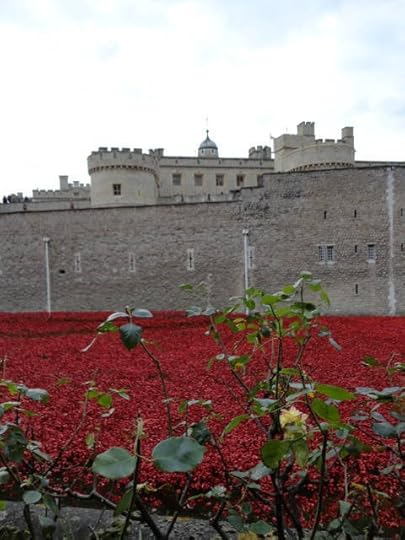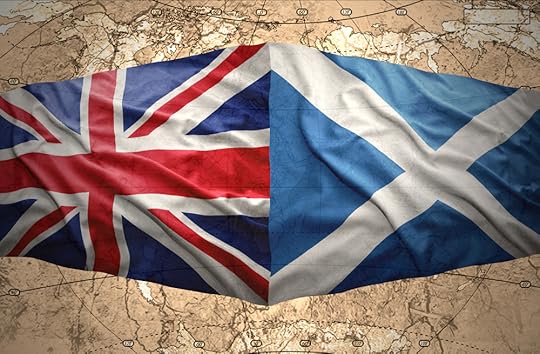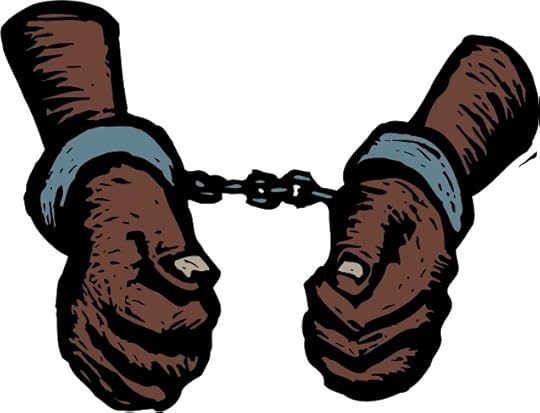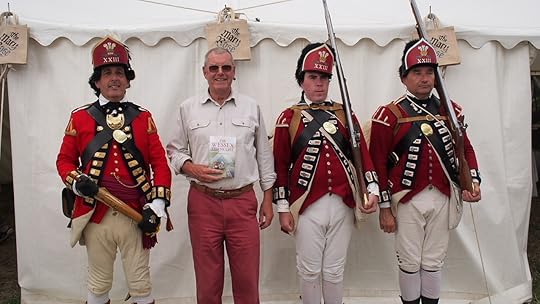Michael E. Wills's Blog, page 4
November 7, 2014
The poppies at the Tower of London
 The spectacle of 888,246 hand-made ceramic poppies lining the whole moat of the Tower of London is an indescribably poignant reminder of the exact number of British and Colonial soldiers, sailors and airmen who gave their lives in the First World War. The scene is a field of red with one corner of a tower covered with a vertical display which is redolent of a trail of blood draining into the moat.
The spectacle of 888,246 hand-made ceramic poppies lining the whole moat of the Tower of London is an indescribably poignant reminder of the exact number of British and Colonial soldiers, sailors and airmen who gave their lives in the First World War. The scene is a field of red with one corner of a tower covered with a vertical display which is redolent of a trail of blood draining into the moat.
The artwork is entitled “Blood swept lands and seas of red” and has been created to coincide with...
October 6, 2014
The Final Act at Saratoga 1777
Two hundred and thirty seven years ago this week the second of the battles of Saratoga took place. After the costly British victory of 19th September there had been a military stalemate. For over three weeks the two armies had been watching and waiting. Throughout this period the American army had increased in size as more and more patriots rallied to the cause. They had made efforts to encircle the British who were now effectively cut off from their supply chain and were running short of foo...
September 17, 2014
So how did Scotland lose its independence in the first place?
 Like so much else in English history, it all started because there was no obvious heir to the English throne. When the unmarried Elizabeth I died in 1603, there was no one in England to inherit the crown. The most legitimate claimant was King James VI of Scotland. He formed a union of the British and Scottish crowns and moved to London. In fact he only visited Scotland again once in his life.
Like so much else in English history, it all started because there was no obvious heir to the English throne. When the unmarried Elizabeth I died in 1603, there was no one in England to inherit the crown. The most legitimate claimant was King James VI of Scotland. He formed a union of the British and Scottish crowns and moved to London. In fact he only visited Scotland again once in his life.
James wanted to unite the Scottish and English parliaments but there was opposition in both countries...
September 1, 2014
The turning point in the American War of Independence
Two hundred and thirty seven years ago this week, there was an uneasy standoff between the British and Americans at Saratoga. On 19th September 1777, the British army of 6,000 British, German and Canadian soldiers defeated an American army of 9,000 men at the Battle of Freeman’s Farm. But the victory was a pyrrhic one and was extremely costly. While the Americans strengthened their position in terms of men and supplies after the battle and gave no ground, the British were totally isolated wit...
August 4, 2014
The Fate of Slaves in the American War of Independence
 During the American war of Independence, there were around half a million slaves of African origin in America, a sixth of the total population. They were enslaved mainly in Georgia, North and South Carolina, Maryland and Virginia.
During the American war of Independence, there were around half a million slaves of African origin in America, a sixth of the total population. They were enslaved mainly in Georgia, North and South Carolina, Maryland and Virginia.
George Washington opposed slavery, but he could not speak out as many members of Congress, including Thomas Jefferson, were slave owners. Most blacks supported the British cause as they saw that this was their best chance of freedom.
On 30th June 1779, the British com...
July 9, 2014
The launch of my latest novel, “The Wessex Turncoat”
 A basic essential of an historic novel is that the facts on which the fiction is based are accurate. I needed really dependable people to help me to ensure that the plight of the regiment on which the story is based, was accurately portrayed. I had the great good fortune to find three experts in their fields who were willing to share their knowledge with me.
A basic essential of an historic novel is that the facts on which the fiction is based are accurate. I needed really dependable people to help me to ensure that the plight of the regiment on which the story is based, was accurately portrayed. I had the great good fortune to find three experts in their fields who were willing to share their knowledge with me.
I was intrigued to know about the participation of Native Americans in the army of George III which tried to subdue the American Revoluti...
May 24, 2014
The Frontier War
My latest book, The Wessex Turncoat, will be published at the end of June. It tells the story of a redcoat soldier in the American War of Independence. Researching the background for the book was a fascinating task. It really illustrated to me the resilience and gallantry of men on both sides of the conflict. The War was not just between the American revolutionaries and the British. A large part of the British army was in fact made up of German troops hired by King George III. There was also...
April 14, 2014
A Doomed Army
 Welcome to the SilverWood Books Blog Hop!
Welcome to the SilverWood Books Blog Hop!
A few of our authors have come together to share a variety of articles and items of interest on their blogs for your enjoyment. There are some lovely giveaway prizes, and – to stay in keeping with the Spring and rebirth theme at this time of year – some colourful Easter eggs. Feel free to collect the eggs, and use them where you like. They were drawn by SilverWood author Peter St John who writes the ‘Gang’ series about a boy who was evacuated to a vill...
April 4, 2014
1066 and the Great Invasion in the North
The “North”? Yes, perhaps the greatest invasion of England ever, took place not at Hastings, but in Yorkshire.
1066 is one of the most famous years in history because it was the year when King Harold of England was killed at the Battle of Hastings and the Norman leader, Duke William, took his crown. But the army which landed in the North was twice the size of the invading Norman army.
In mid- September 1066, the Norwegian King Harald, arrived at the River Humber with 300 ships and 15,000 men an...
March 7, 2014
The Vikings: Life and Legend
 I had been looking forward to the opening of the new exhibition at the magnificent British Museum in London, “Vikings : Life and Legend”, for some time and we had booked a viewing on the day of the launch. It did not disappoint!
I had been looking forward to the opening of the new exhibition at the magnificent British Museum in London, “Vikings : Life and Legend”, for some time and we had booked a viewing on the day of the launch. It did not disappoint! 
The Exhibition has brought together Viking age artefacts, on loan from many museums, from most of the places these intrepid voyagers visited, from Iceland to Istanbul. The result is an outstanding, once in a lifetime opportunity to get to know how the Vikings lived, t...



